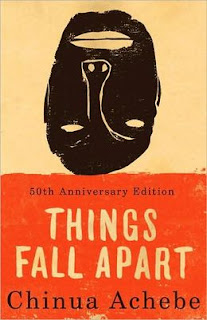African literature has
been an important part of all written and oral arts since long time ago. It
consists of amazing and legendary proverbs as well as many stories about all
the problems and situations that all people living in the country have been
facing throughout the years.
The first african written
work was found in the year 2300 b.C., just after the Egyptians started using papyrus
and texts when the members of their town died. With this, the people from the sub-Saharan
Africa, started using oral literature such as: proverbs, riddles, epic
narratives, songs, chant, folktales and all those things that made their
culture rich in rituals and traditions. In the year 1920 African literature was
enormously influenced by the Islams. People started using an Arabic style to
write such as the first African history written by
Abd al-Rahman al-Sadi.
Colonization came to destroy the primitive and
peaceful culture that Africans had. Europeans forced them to do harsh work. They
were not just treated as objects, they were kidnapped and sent far away from
home. This made all slaves to start writing about their situation and feelings.
Soon, all newspapers were full of African poems and stories.
The Negritude movement, started between 1920 and
1930, which was all about valuing everyone’s life, since Africans were treated
so badly, they had lost all hopes in everything.
Many books and writings were published to make
this people understand they were real human beings, and to make conscience that
they were still a country and that they had to keep fighting to move forward.
Reference:
Unc.edu (1930) African
Literature. [online] Available at:
http://www.unc.edu/~hhalpin/ThingsFallApart/literature.html [Accessed: 29 Jan
2013].
